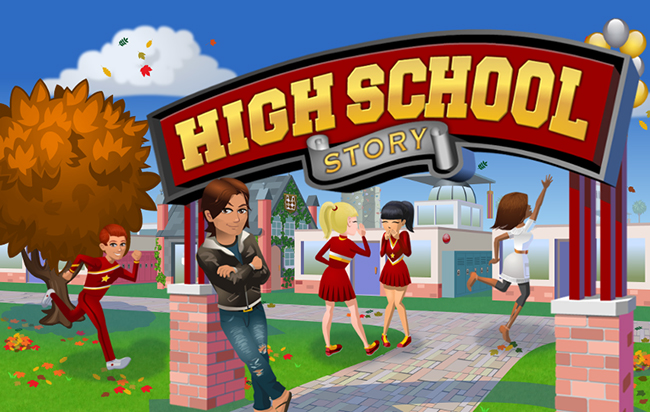The hot-button debate of whether video games should be banned for relaying negative messages and inducing violence among children have yet to meet its conclusion. But one thing is for certain; game developers are battling the accusations by making a positive difference. Pixelberry Studios, to be precise, are on a crusade to utilise the medium to reach out to distressed teenagers. Oliver Miao, CEO of Pixelberry Studios who previously tackled the cyberbullying issue with his invention of ‘High School Story’ strikes again with yet another version of the game. This time, he campaigns against body-image issues.
For every six American teens, one gets bullied every year. One out of every seven teens seriously contemplates of committing suicide. These disconcerting statistics uncovered by the Centers for Disease Control and Prevention was the impetus behind designing this campaign.

We are often unaware of the detriment of online trolling until we hear stories of people who decided that death is an easier way out than dealing with hurtful public shaming. Two of such tragic victims of cyberbullying, Audrie Pott and Rebecca Sedwick drove Miao to do his part in saving lives the only way he knows how, by delivering a message with the aid of games.
“I was bullied very badly in middle school, when a bigger kid would put me in a headlock and dangle me over a trashcan whenever our teacher was late. During this reflection, we realized that we had a perfect platform to educate teens about cyberbullying, since our game was popular among teens, and since it’s helpful to engage with teens about topics like this in places and situations where they’re relaxed and comfortable.”

The game was first officially launched in August 2013. A series of missions with cyberbullying as its main theme was incorporated into the plot. The players help a character in the game who is a victim of cyberbullying to deal with the provocations. The game developers go the limit by assimilating actual cases of cyberbullying and prevention tactics in the quests. Not only does this acquaint the players on how to handle a real life situation, but also to work with characters from diverse backgrounds and cliques to build a dream school that is highly tolerant and welcoming. It has since been downloaded over ten million times across all formats.
Also Read: CPF Cheongsam Lady Video: Stop the Cyberbullying, Singaporeans!
With one war well-fought, Pixelberry Studios move on the next; body-image issues. Recent studies reveal that American teens -80% of girls and 20% of boys- reflect poorly on their body image. Collaborating with National Eating Disorders Associations (NEDA), the latest version of the games cultivates healthy eating habits and positive self-perception.

The story arc depicts the protagonist, Mia who hears a spiteful remark about her body and begins to obsessively exercise and diet. The task is to assemble a group of misfits who feel ostracised in their old school to work hand-in-hand to revamp the school. As a result, players will be able to comprehend the sort of pressures and discrimination that people face in regards to their appearances and the means to overcome them. This would hopefully encourage youngsters to discuss unreservedly about appearance issues and eating disorders. As we well know, opening up and admitting a problem is the first step to solving it.
Teaming up with NEDA, Miao explains that the crew work towards forming storylines that are not only effective in creating awareness but are representative of existent situations and taking a responsibility for curbing them. They have also generated an in-game FAQ (Frequently Asked Questions) section with additional information regarding the issues and arranged a helpline for players to contact the staff from NEDA through the game. These efforts are taken because Pixelberry Studios are attentive to the fact that sensitive topics need to be approached systematically and with the assistance of experts.
Miao describes a distressing interaction once with a player who was scheming to kill herself. They contacted a suicide prevention hotline for guidance on how to handle the issue without triggering her. It took them a week of nerve-racking exchanges to finally convince the girl to reach out for professional help. She claimed that if it weren’t for the game, she would not still be here. This occurrence was a powerful reminder of the influence that games have on youngsters.
“Teens are spending countless hours on smart devices. Rather than say this cultural shift is bad, we’re trying to connect with teens where they spend their time and provide them with experiences that are fun, engaging, and positive,” explained Miao.
Pixelberry Studios are obviously making a breakthrough by shining light on social issues that we often push aside as harmless or “just a phase”. Their vigilance in using games as a platform to extend a helping hand is absolutely commendable.
Also Read: Being Ignored on Facebook LOWERS Your Self-Esteem, Study Finds














